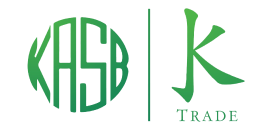Dear Friends,
I hope you had a lovely Valentine’s day. According to a survey by Gallup, around 58% of Pakistanis oppose celebrating Valentine’s Day (click here). Only 18% are in favor of celebrating it. I will make the safe assumption that all of the readers of this blog are in that 18%. I am in Belek in Antalya on holidays (UK term break) and got good time to sit in a nice Turkish Cafe, sip Turkish Coffee and catch up on the corporate earnings which have been published so far.
Turkey’s Erdogan was in Pakistan last week, along with 57 CEOs and they signed MoU for deals worth $5bn. I think Turkey, Qatar and Malaysia will increase in significance to Pakistan, as the Saudi, UAE, Egypt camp moves economically and strategically closer to India. This is quite a important strategic re-alignment. It could become even more important in the scenario of a Democrat President in the US.
Since my last blog, ten days ago, there were three important economic events. Firstly, the IMF concluded its second tranche review and published a positive concluding statement (click here). However, some news article suggests, as we wrote in the last blog that the slippage on tax collection and lack of reforms in power sector could cause an issue for the June review. Secondly, FATF publish its statement on Pakistan yesterday (click here). While noting the progress made by Pakistan, FATF noted that Pakistan still needs to comply with 13 points out of the 27. It has partially completed 11 out of these 13. It has given Pakistan additional time till June 2020 to comply with them to avoid blacklisting. Thirdly, the data on current account for January showed a 73% contraction in the deficit, albeit all driven by a reduction in imports. Exports are still declining despite all the efforts.
So from the macro prospective the report card still shows vulnerabilities, and the only positive is that the balance of payment crisis seem to have been avoided. The economy will probably remain in a low growth stage for the next 12-18 months.
The corporate earnings broadly reflect that. In the Auto sector, Indus Motors, reported a 71% y/y decline in earnings (30% below consensus) and Honda Atlas slipped into a loss due to a 54% y/y decline in revenues. In the cement sector, the positive has been stability in revenues, but earnings for the three companies which have reported so far are down year on year. DG Khan’s EPS is down 62%, Fauji Cement’s down 81% and Cherat Cement’s EPS dropped 157%. The decline in earnings for the two textile companies, Nishat Mills and Interloop is surprising, given the incentives provided by the government to encourage textile exports. I have summarized, company results below in the blog for those who want details.
However, the most remarkable is the growth in earnings for the banking sector. Typically the banking sector is a proxy of the overall macroeconomic conditions in an economy. In Pakistan, it is countercyclical. In 4Q19, the profits of the nine banks which have reported so far, are up 62% y/y. In 2019, the earnings growth is 27%. As someone said, Pakistani banks are more of fixed income asset management firms (the Loan to Deposit ratio for the sector is close to 50%). As the historical investment portfolio holdings mature, the banks will be able to further enhance their yields in 1H20. There is hardly any major concern for credit quality, as for most banks the lending has been quite conservative.
While textiles exports are proving to be non-responsive to policy stimulus, I think there are three areas where the government has the potential to generate the most foreign capital inflows. These are technology, tourism and remittances.
Technology has been a frequent topic of this blog. Ofcourse this is not all talk and we have skin in the game. KASB’s fintech app, Ktrade.pk aims to open up stock investments to the masses. Not just financial inclusion, we call it financial democracy. Our aim is to get 2m Pakistanis to invest in equities. Our team is constantly on the road, talking at universities, business fraternities, chambers of commerce, teaching people how to invest. Last week, they were in Sukker. Here is a some endorsement from young business leaders (click here). Ktrade is the Robinhood of Pakistan (or shall I say, E-Trade). If you havent downloaded the app yet, please do. Our team will then call you to help you onboard.
***************
4Q19 results review:
Power/Energy Sector:
KAPCO: 13.7% growth in earnings driven by benefits from FX depreciation. The results are broadly inline with consensus. The key issue for the company is receivables as it again did not announce any dividend.
Autos:
Al Ghazi Tractors: The company posted a Net Loss of PkR311m compared to a profit of PkR343m in the same period last year. The results were below expectations. Revenues declined by 62% due to a 69% decline in units sold. The company also suffered from high steel costs and higher finance cost.
Indus Motors: A massive 30% miss in the quarter. Revenues declined by 47%, gross margins weakend to 8% due to unfavourable product mix and 76% decline in EBIT (EBIT Margin declined to 4.8% from 10.7%). Earnings slipped by 71% year over year.
Honda Atlas: Earnings below consensus. Revenues declined by 54%, gross margins slipped by 390bps to 6.6%. The company posted a loss of PkR41m compared to a profit of PkR602m in the same period last year.
Cements:
Lucky Cement: Results were lower than consensus. Revenues declined by 15% due to 6% y/y decline in volumes. Gross profits declined by 57% and earnings declined by 67%y/y to PkR981m.
DG Khan Cement: Earnings beat consensus. Revenues were up 1% year over year driven by 25% growth in volumes. Prices declined by 24%. Gross Profit declined by 29% to PkR1.62bn. The earnings beat was primarily driven by better than expected gross margins. Finance cost increased by 67% to PkR1.33bn. Consequently earnings were down 62% to PKR533m.
Fauji Cement: 45% miss on earnings. Revenues were up 4% year over year to PkR5.31bn. Gross profits declined by 76% to PkR392m and Net Profits declined by 81% to PkR189m.
Cherat Cement: The results were better than expected. The company posted another quarterly loss. Revenues were up 36% to PkR5.03bn due to 68% growth in volumes. However, gross profits declined by 34% and interest expense increased by 5x. The company reported a net loss of PkR222m compared to net profit of PkR596m in the same period last year.
Fertilizers:
Engro Fertilizer: Revenues up 9% driven by 28% growth in urea volumes and 3% growth in DAP. Gross profit increased by 28%. The tax rate was much higher than last year (35% versus 26%) and earnings increased by 23% to PkR6.4bn (inline with consensus).
Banks:
HBL: HBL had the biggest positive surprise in the sector. 4Q19 earnings increased by 12x to PkR6.7bn (PkR5.47 EPS). The beat was driven by stronger non-interest income and a decline in cost to income ratio to 66%. Net Interest income increased by 26% y/y and Non-interest income increased by 137% driven by higher FX income. The management expects cost to income ratio to further decline to 60% in 2020 compared to 73% in 2019 as the business transformation project tapers off. For 2020, the management is guiding to high single digit growth in loans, low double digits in deposits and slight improvement in net interest margins. They expect low double digit growth in fees income. We think the key catalyst for the stock is closure of the NY branch (expected in March).
UBL: UBL is the only bank which saw a decline in earnings in 4Q19 compared to same period last year. 4Q19 Earnings declined by 15% y/y to PkR4876m. Although Net Interest Income increased by 18%, lower fees income, higher tax rate, opex and losses on trading book led to lower than expected results. For 2020, management expects 10% growth in deposits and improvement in interest spreads due to repricing of lower yielding investment portfolio.
Bank Alfalah: While Earnings increased by 61% y/y to PkR3.3bn (EPS: 1.87), they were below consensus due to higher than expected provisioning and slightly lower than expected core income (+33%y/y).
Meezan: Like Bank Alfalah, Meezan also posted strong results with earnings up 86% y/y in 4Q19 to PkR4.7bn but the results were below expectations due to higher provisioning charge. For 2020, management expects 13% deposit growth, faster loan growth (LDR: 53%), 150 new branches, reduction in cost to income ratio to less than 50% and ROE of 20-25%.
MCB: MCB beat consensus with a 14% increase in earnings to PkR7.7bn (EPS: PKR6.51). This was driven by a 37% increase in core income. For 2020, management expects further improvement in NIMs, 10-12% growth in deposits, low single digit loan growth and 6-7% growth in opex. MCB is one of the most conservative bank in the sector and could see a strong growth in core income in 1H20 due to repricing of investment book.

